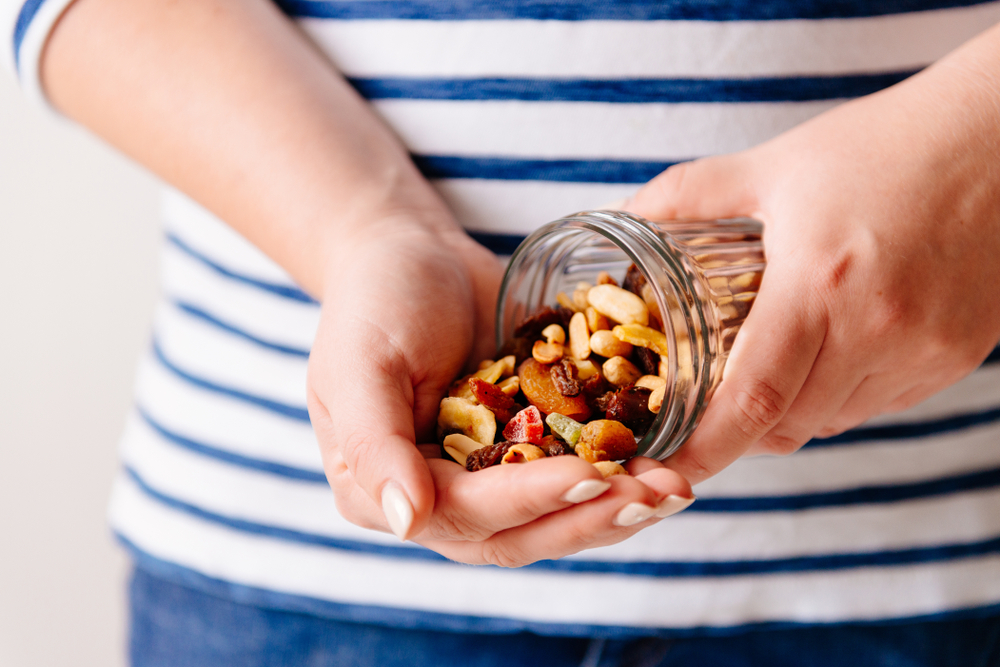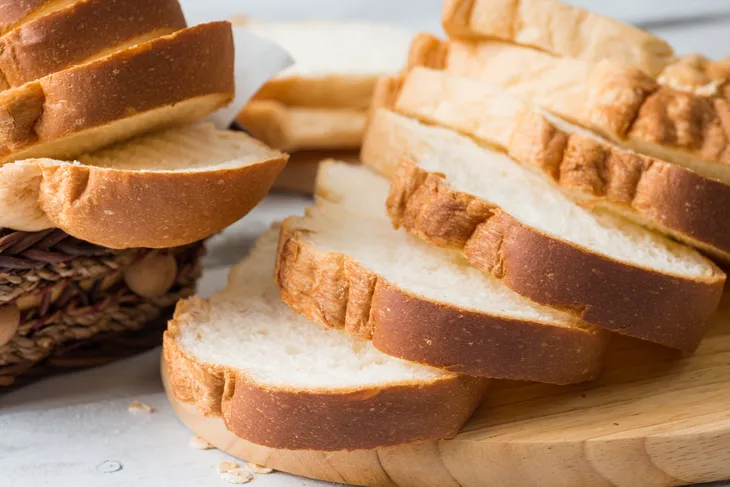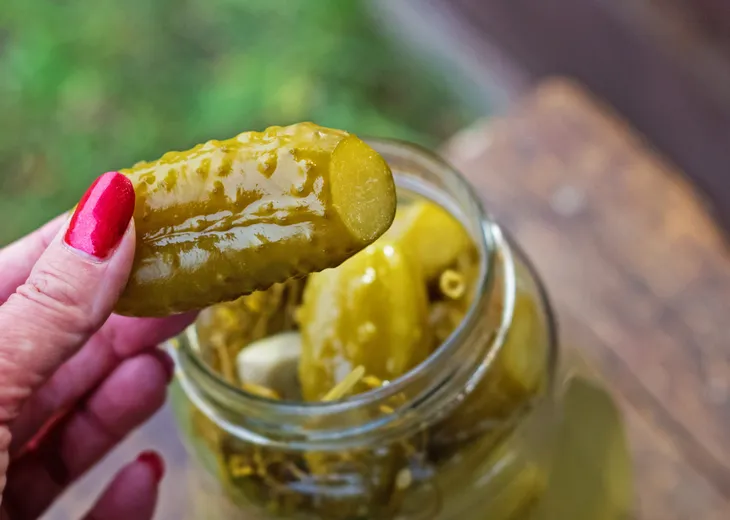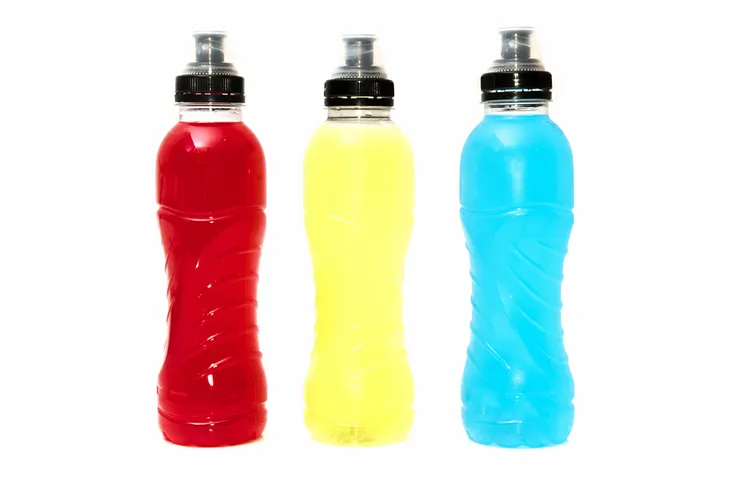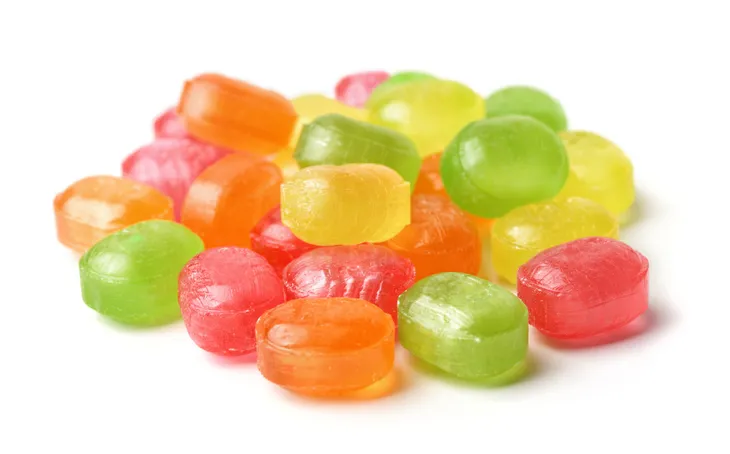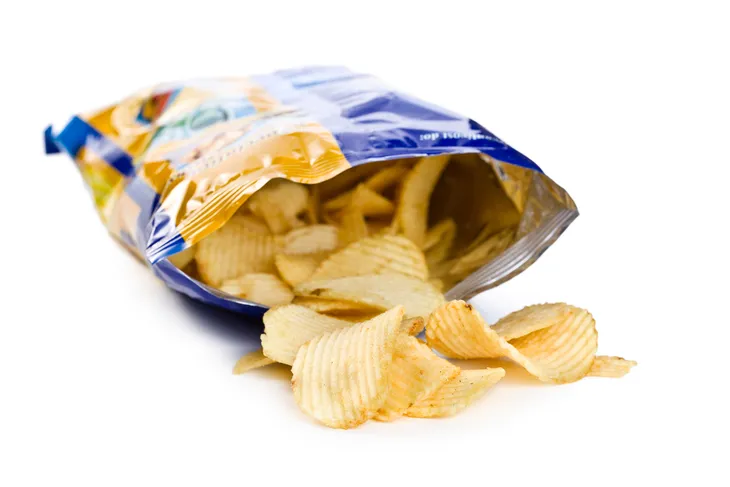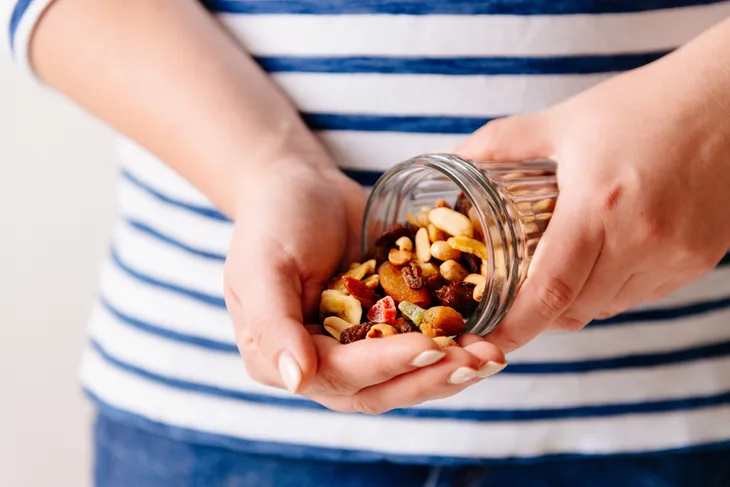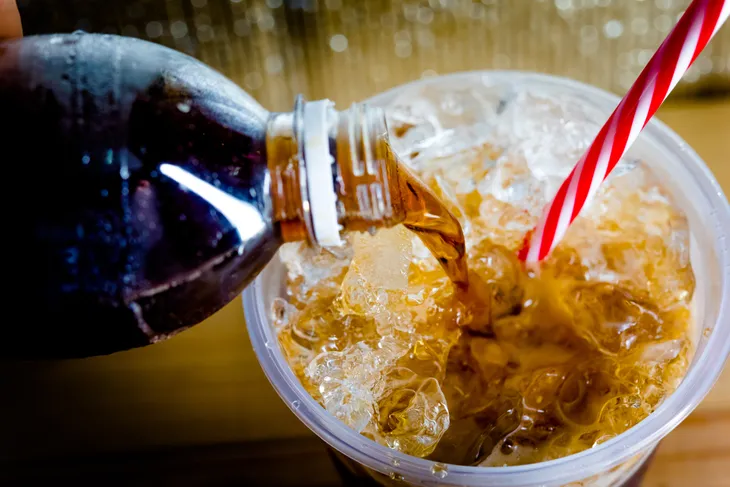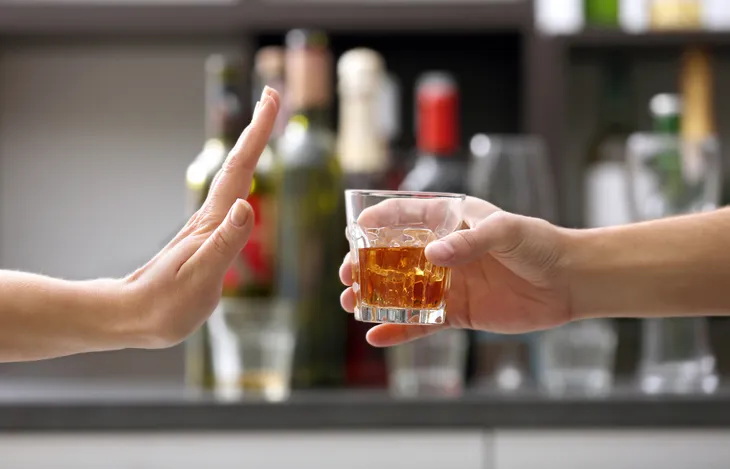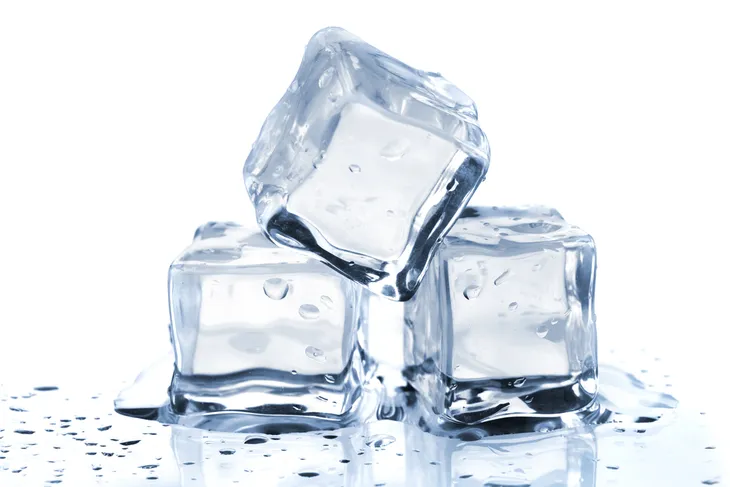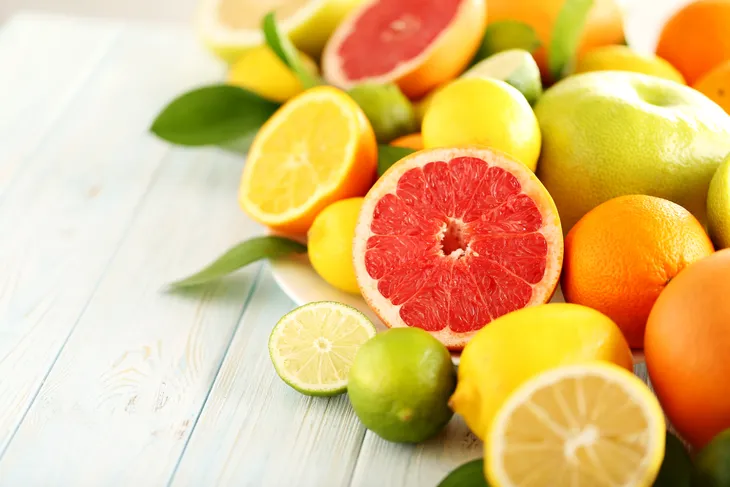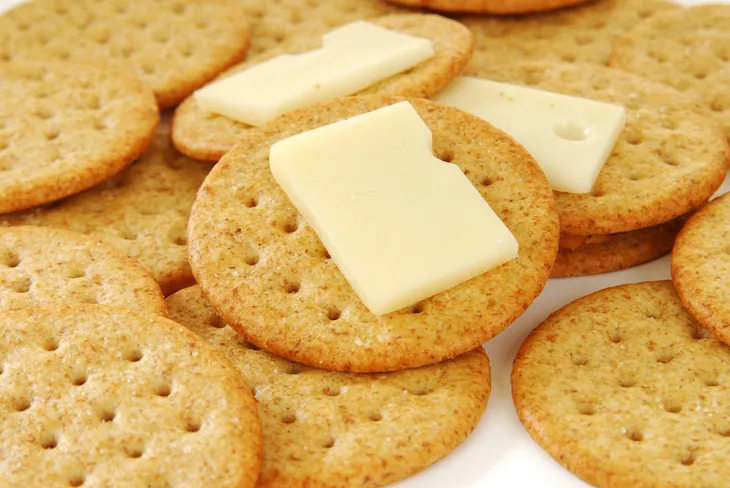When it comes to food, our eyes and taste buds might love certain items, but your teeth – not so much. That’s because certain foods can actually cause erosion of the tooth’s surface causing pain and sensitivity, while others can lead to cavities and gum disease.
While some of these foods can be tempting to the tummy, it’s best to stay away from them for the good of your chompers. Let’s take a closer look at 12 foods that are destroying your teeth…
Want diet & nutrition content delivered straight to your inbox? Sign up for our exclusive diet & nutrition newsletter!
1. White Bread
Who doesn’t love white bread? Your teeth, that’s who. This highly-processed bread is full of starches that your saliva breaks down into sugars, which can work its way into the crevices of your teeth and cause plaque.
Left untreated, plaque can cause tooth erosion as well as periodontal disease that can cause pain, bleeding gums, and even loose teeth, according to the Mayo Clinic. Try to stick with bread that’s made from whole grains, which aren’t processed like white bread.
2. Pickles
While tangy and crunchy, indulging in pickles too often can have detrimental effects on your teeth. The culprit is the vinegar used in the processing that adds the signature flavor. The problem is that it’s also acidic, which can spell bad news for your mouth.
There’s actually a study published in the British Dental Journal that examined the effects of pickles on teenagers in the UK. The findings showed that among more than 2,300 subjects, pickles caused more tooth wear than other factors. This doesn’t mean you have to give up pickles from your next burger – but eat them in moderation, and rinse with your mouth with water directly afterwards.
3. Sports Drinks
You might turn to sports drinks after a particularly tough workout to restore those electrolytes and rehydrate yourself at the same time. But while that can be helpful if you’re engaging in team sports or running the track, sports drinks may not have a lot of benefits for those who aren’t.
Sports drinks can actually contain almost as much sugar than soft drinks, according to the University of Iowa Stead Family Children’s Hospital. The source notes that a 32-ounce bottle of sports drink can have up to 76-grams of sugar, compared to up to 124-grams of sugar in standard soda. A study also notes that fruity sports drinks are also considered acidic, leading to the risk of tooth erosion.
4. Hard Candies
These are also referred to as boiled sweets, and can come in many forms, including lollipops and candy canes. They make a nice treat for a kid after scoring a goal in soccer, for example, but they may threaten the health of their teeth at the same time.
It’s probably not a big surprise that hard candies are full of sugar (up to 63-grams of sugar per 100-grams of candy, according to the U.S. Department of Agriculture.) But another risk of hard candies can be chipped or broken teeth, which can be painful and result in an emergency trip to the dentist.
5. Caffeinated Coffee and Tea
For many Americans, a cup of Joe in the morning is the perfect way to get things going. In fact, the Huffington Post notes that people drink in the U.S. drink more than 2-cups per day on average, which apparently gets higher as the person ages.
The problem is that caffeinated drinks can actually dry out your mouth, which is a problem because saliva helps to neutralize acids that can harm the teeth. Coffee and tea have also been known to stain the teeth. And of course, not everyone likes their cuppa unsweetened, meaning there could be lots of added refined sugar.
6. Potato Chips
There are a few tastier and more satisfying snacks to enjoy while you’re watching your favorite shows. But while you might be munching away on chips happily, you can bet your teeth might not be as happy about it.
Potato chips are loaded with starch, which as we mentioned can break down into sugars that coat your teeth and encourage bacteria. Because of the nature of potato chips, they can easily get into crevices in your teeth that are hard to reach with a toothbrush. So if you’re going to chow down on chips, keep your floss handy.
7. Dried Fruit
This one may come as a bit of a surprise to some, because fruit, right? However, while they can pack a fair amount of vitamin A as well as dietary fiber, they are also on the chewy side – meaning they can also get stuck to your teeth and hide between gaps.
Dried fruits also contain a very high level of natural sugars – for example, according to Healthline, raisins contain up to 59-percent sugar content, while dates can be as high as 66-percent. A high amount of this sugar content is fructose, which has been linked to type 2 diabetes and heart disease, notes the source.
8. Carbonated Soda
We’d be remiss if we didn’t include this enemy of the teeth on the list. Carbonated drinks boost the tooth-wearing properties of plaque by producing more acids. In fact, there was even a study that compared the enamel erosion factor of carbonated beverages to that of illicit substances.
Of course, there’s the sugar content of soda that’s hard to dismiss. A can of soda can contain around 33- to 39-grams of sugar – but what’s interesting is that a caffeine-free soda can actually contain more, so don’t be fooled. You might get zero sugar from a diet soda, but there’s research cited by Medical News Today that suggests too much diet soda can lead to higher risk of heart conditions, diabetes, and even dementia. If it’s the bubbles you crave, opt for some sparkling water instead.
9. Alcoholic Drinks
Drinking too much alcohol can have a wide range of health impacts, including liver damage and heart problems. But it can also have a negative effect on your oral health from heavy consumption.
Alcohol can dehydrate you and dry out your mouth, which encourages tooth decay. It can also increase your risk of developing infections such as gum disease, and you might even wind up with oral cancer if you don’t keep your drinking in check. Combining smoking and drinking could raise the risk of cancer even higher, according to The Oral Cancer Foundation.
10. Ice
What harmful effects could frozen water possibly have on your teeth? Well, for one thing, ice is hard, which can damage your teeth while you casually chew on it while sipping a drink. In fact, the American Dental Association actually lists chewing ice as one of the top habits that can ruin your pearly whites.
The association notes that both tooth enamel and ice is a crystal, which causes breakage when the two are forced together. While the tooth is usually the victor, sometimes the ice can do damage or knock out a filling. There’s also the chance of the dreaded “brain freeze” caused by cold substances in your mouth. Chill your drinks in the fridge instead of adding ice, the source suggests.
11. Citrus Fruits
When you think of fruit, it’s usually about how delicious and nutritious they are – after all, they’re packed with vitamin C and other goodies. In fact, research has shown that consuming more fruit can actually lessen the risk of disease.
However, when it comes to how friendly fruits are to your teeth, they’re not all made the same. For example, grapefruits and lemons are highly acidic and can eat away at tooth enamel. Meanwhile, while oranges are a citrus fruit too, they are considered less harmful to your teeth than the others and usually contain calcium and vitamin D that your teeth love.
12. Crackers
These make handy snacks for kids and go well with soup, but you might want to reconsider your cracker consumption. That’s because they contain refined carbs that are converted to sugar when you chew them.
Also, while crackers are crunchy, they get pasty when broken down by saliva and can get into spaces between your teeth that are difficult to reach with a toothbrush. Crackers also typically have high sodium content, so you might also be raising risk of high blood pressure and even stroke if you regularly binge on them.
